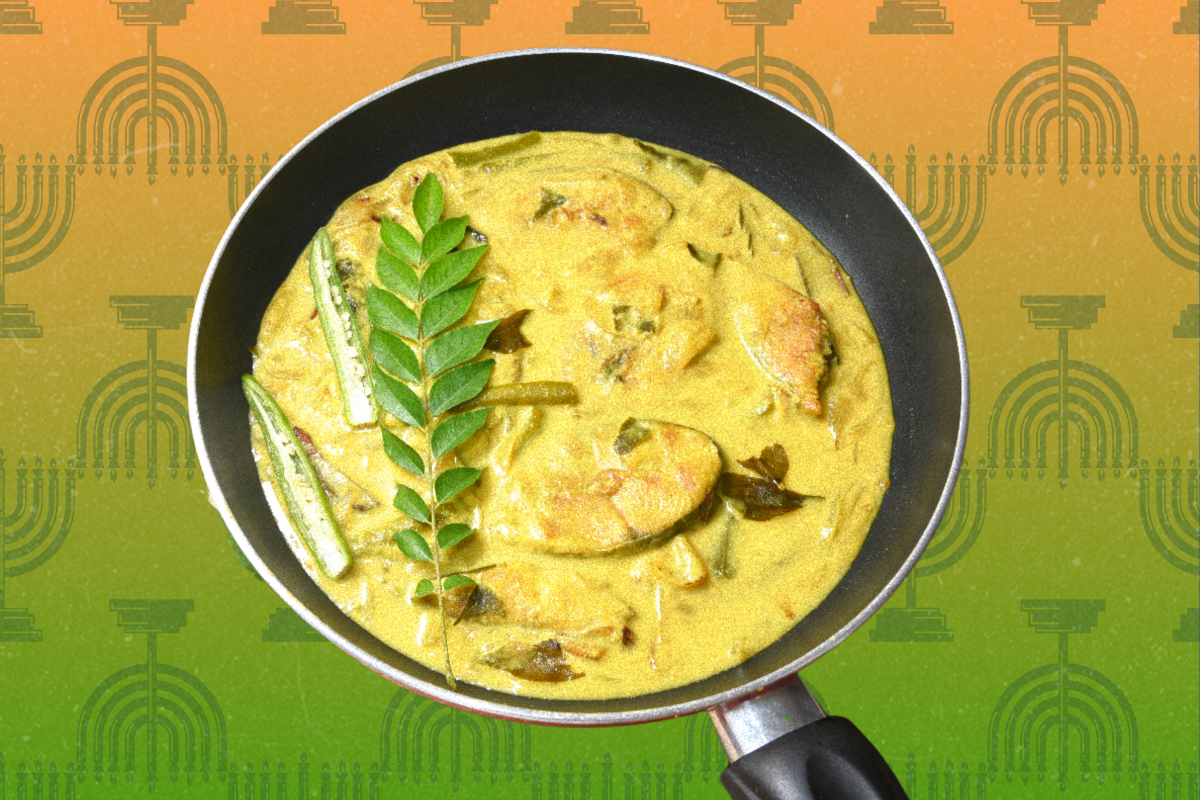Hanukkah was never of high importance to our family’s yearly Jewish traditions like Rosh Hashanah or Yom Kippur, but when we celebrated, we did it our way. My family’s history lies in India where the small communities of Cochin and Bene Israel Jews dwell. Part of the Bene Israel community, my grandmother and her family attended the oldest synagogue in India, the Magen David Synagogue, and upheld the traditions they were persecuted for practicing many centuries ago. After immigrating to the United States in the 1970s, my grandmother held onto her Indian and Jewish roots by leading lectures on the Jews of India and, most importantly, infusing our roots and our culture into the holidays. Partaking in my grandmother’s Jewish holiday meals were one of the many ways my family reconnected with our roots. This year, one particular such Hanukkah celebration has been on my mind.
On a chilly Hanukkah night many years ago, my mom and I, after many years of hosting the first night of Hanukkah festivities, were invited by my grandmother’s home, which meant Indian cooking. Right after stepping off the malfunctioning elevator in my grandmother’s apartment building, I was immediately hit with the smell of aromatic warm Indian spice. My grandmother’s kitchen was transported into this hallway. Indian food wafted down the hallway much to the distaste of many of her neighbors. Walking down the dimly lit passageway, my mom and I were weighed down carrying an overflowing tray of potato latkes. While it was just the three of us, we cooked as if 50 people were coming to our culturally-mixed Hanukkah party. The door swung open, and my grandma stood in the bright entranceway. Judging by her disheveled hair and poorly kept apron with permanent stains of garam masala, I could tell she had been cooking in the kitchen the whole day. Underneath her apron I could see her Star of David prominently displayed on her silk shirt.
My grandmother ushered us inside to a simple yet beautiful set up. Contrasting the starkness of the hallway, my grandmother’s apartment was filled with knick-knacks from her travels and a bright chandelier that didn’t quite jive well with her apartment but captured my grandmother’s quirky aesthetic. On the table my grandmother had intentionally put the placemats she bought when visiting India, while her menorah was purchased at the local synagogue. The table itself showcased the unique blend of Indian and Ashkenazi traditions that made up our family’s Judaism. Upon entering the kitchen, the source of the strong aromatic smell was identified. Sitting in a large vat was my grandma’s famous green curry, a recipe passed down to me and one which I now have the honor of upholding. My grandma’s green fish curry was always served for special occasions including Shabbat, High Holidays and of course, on Hanukkah.
Having grown up in Ashkenazi culture, despite being born into the Bene Israel (Sephardic) community, the way I chanted the blessings was vastly different from the way my grandmother did. I would speed through the blessing as if I were a rabbi attempting to complete mincha by 6:10 p.m. for dinner. My grandmother, on the other hand, would take her time. The blessings she chanted sounded like a combination of Ashkenazi and Sephardic melodies. When she finished, we moved towards the dining area for the highly anticipated green curry.
An Indian meal would not be complete without silver plates that were passed down from generation to generation, papadum and a large helping of rice. My grandmother was continually jumping up and down, grabbing food, constantly asking if we needed anything. My mom would pressure my grandmother to sit down and relax, but my grandmother was hardwired to serve her guests no matter the cost. In India, you were and are considered a “bad” host if an entire table of food was not prepared. My grandmother kept that tradition, and even though we were family, she served us despite our pleas to try and help. My grandmother refused to sit until we were served and even then, most of our conversations were occupied with questions of whether the food was okay or if we needed pickle – a spicy sauce-like dip, almost like the Indian version of kimchi.
The green curry made its mark on the Hanukkah dinner quite literally. Green marks from the curry splashed off our plates and stained the linen cloths — but that was the sign of good food. The vat of green curry was left completely dry by the end of our Hanukkah meal. My family had both soaked in the light of the Hanukkah splendor, while indulging in our traditional cultural meal.
Hanukkah is celebrated in unique ways all over the world. Whatever your family traditions are, cherish them and pass them from generation to generation just as my grandmother did, and just as I continue to do in her memory.



